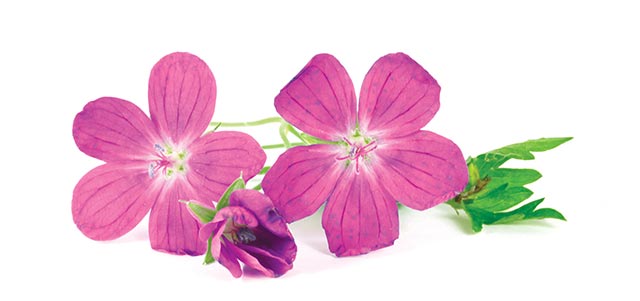Study finds geranium demonstrates antidepressant and anxiolytic properties
12/22/2018 / By Ellaine Castillo

A lot of people view mental illness as a stigma, despite the staggering number of people affected by it. Aside from it being one of the largest problems in the modern world, it’s also a source of economic burden for most countries affected by it. In the U.S. alone, people spend more than $193.3 billion a year for issues related to their mental health. This cost includes the cost of medications and professional care. This highlights the need to find remedies that are safe, effective, and inexpensive. The latter, in particular, is important, as reducing cost can lessen the burden on patients already suffering from mental illness. Researchers from Iran and Italy found that geranium (Pelargonium roseum) essential oil can be used to effectively treat anxiety and depression.
The most common mental health problems plaguing Americans today are depression and anxiety. The National Alliance on Mental Illness estimates that nearly 20 percent of the U.S. adult population is diagnosed with major depressive disorder or anxiety. A likely cause for these conditions is a change in the production of neurotransmitters, such as serotonin and gamma-aminobutyric acid (GABA). Because of this, many antidepressants and medications target pathways that involve these neurotransmitters. However, these aren’t just costly, they are also associated with several severe side effects, like elevated blood pressure, constipation, weight gain, nausea, and diarrhea, that discourage patients from taking them. To reduce the cost of treatment as well as the risk of side effects, herbal remedies can be used instead.
Geranium is commonly found in the form of an essential oil. It is widely used in traditional medicine as a calming agent and as a treatment for different skin conditions. In fact, several studies have looked at the science behind these claims.
In this study, published in Phytotherapy Research, researchers conducted an in vivo test to determine the potential of geranium essential oil as an anxiolytic and antidepressant. They used male Swiss albino mice as the animal models and injected them with various concentrations of the essential oil in the abdominal area. The results of the test showed that geranium significantly improves anxiety and depression.
The authors of the study also identified the phytochemicals in the essential oil which are potentially involved in the plant’s biological activities. They observed the presence of citronellol and geraniol. Furthermore, the researchers also identified pathways involved in these biological activities by coadministering inhibitors of the serotonin and GABA pathways. From this, they observed that only the serotonin pathway was involved in geranium’s mechanism of action.
Overall, these results prove that geranium essential oil can significantly improve anxiety and depression naturally, through a mechanism of action that involves the serotonergic pathway. With further research, this plant can be developed into a more effective, safer, and more accessible alternative to conventional antidepressants and anxiolytics. (Related: Antidepressant drug sales plummet as patents expire and patients flee to safer alternatives.)
Symptoms of depression
Many people are suffering from depression, but not all of them know that they have it. This makes them unable to take the necessary actions needed for them to heal. Some of the common warning signs that people with depression exhibit include the following:
- Hopeless outlook on life
- Feelings of worthlessness
- Loss of interest in the things you love
- Increased fatigue
- Sleeping problems
- Changes in appetite and weight
- Wild mood swings
- Suicidal thoughts
Learn more about depression and anxiety — including how to treat them naturally — at Mind.news.
Sources include:
Tagged Under: Antidepressant, Anxiety, anxiolytic, depression, geranium, geranium essential oil, mental health, natural cures, Pelargonium roseum, remedies
RECENT NEWS & ARTICLES
COPYRIGHT © 2017 BEATDEPRESSION.NEWS
All content posted on this site is protected under Free Speech. BeatDepression.news is not responsible for content written by contributing authors. The information on this site is provided for educational and entertainment purposes only. It is not intended as a substitute for professional advice of any kind. BeatDepression.news assumes no responsibility for the use or misuse of this material. All trademarks, registered trademarks and service marks mentioned on this site are the property of their respective owners.



















